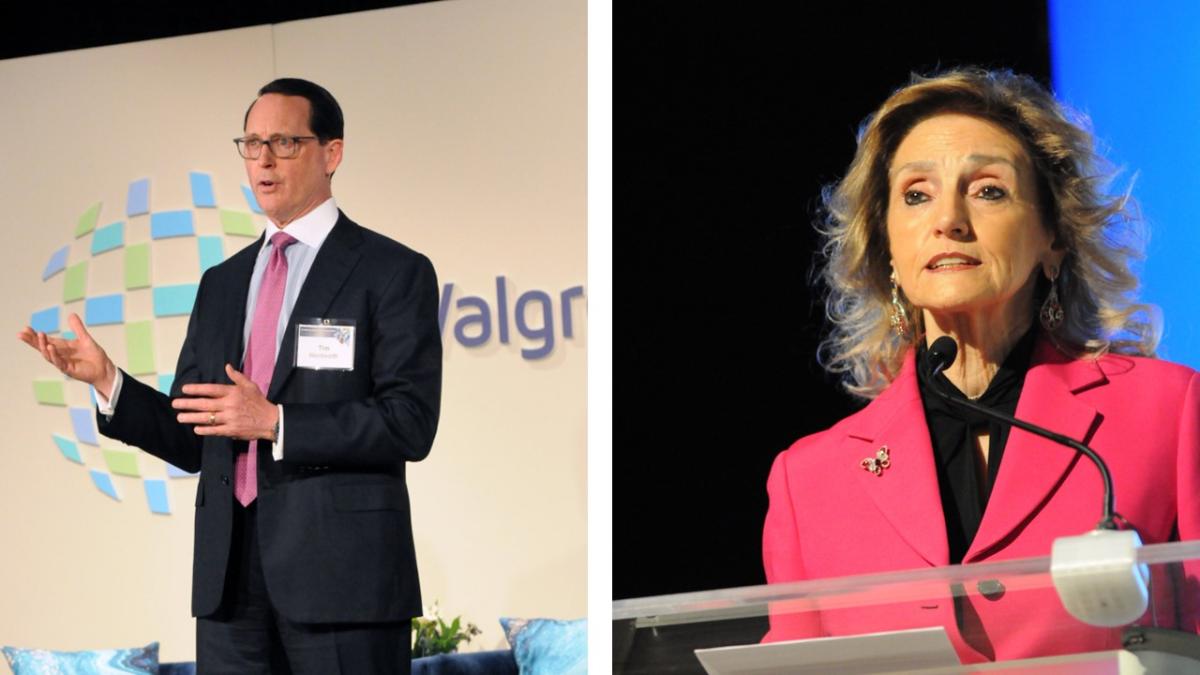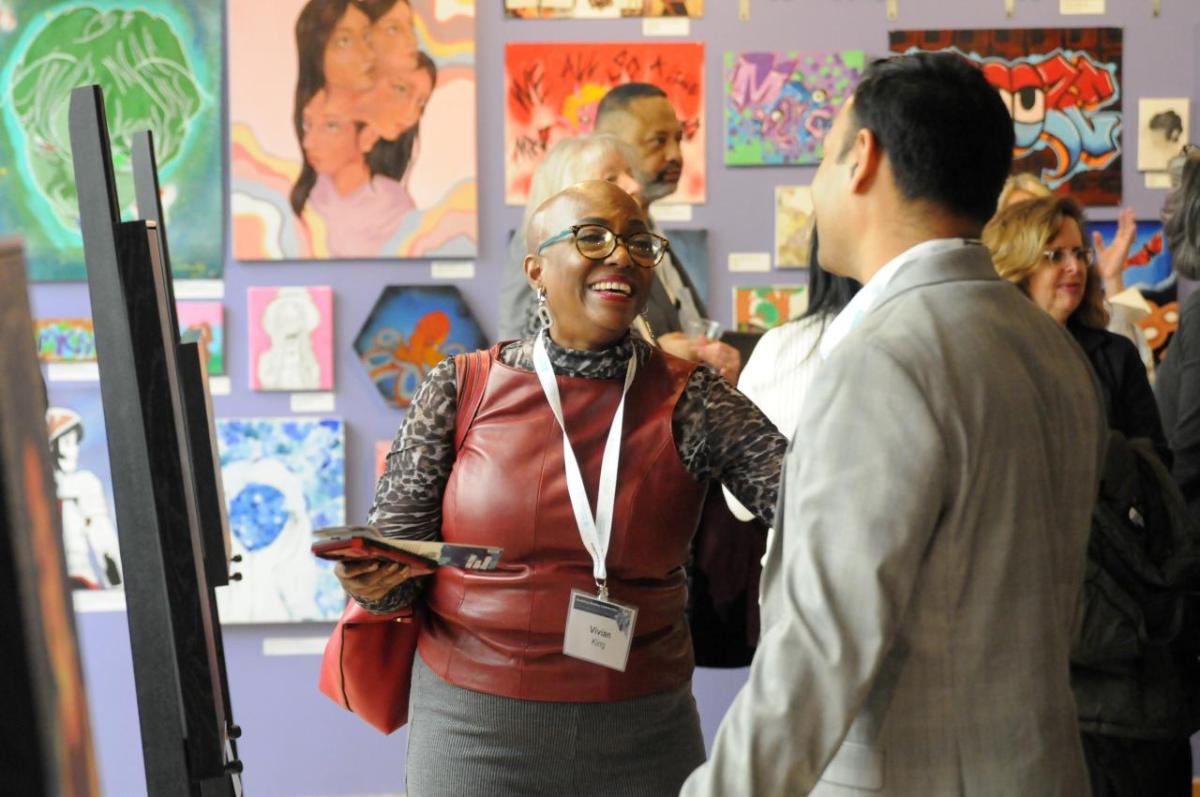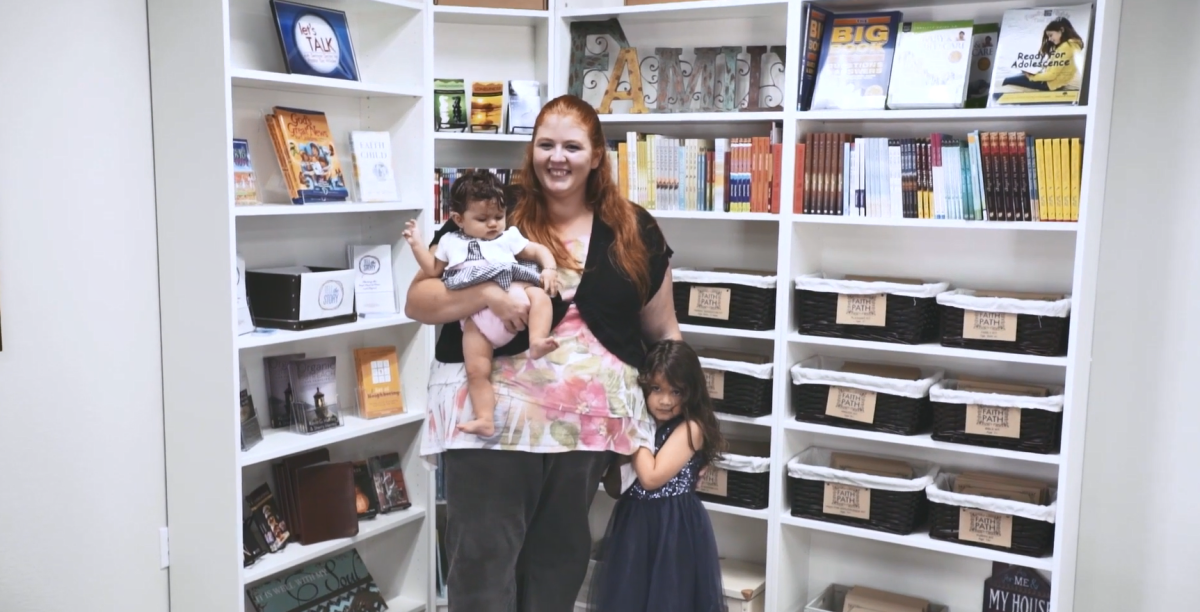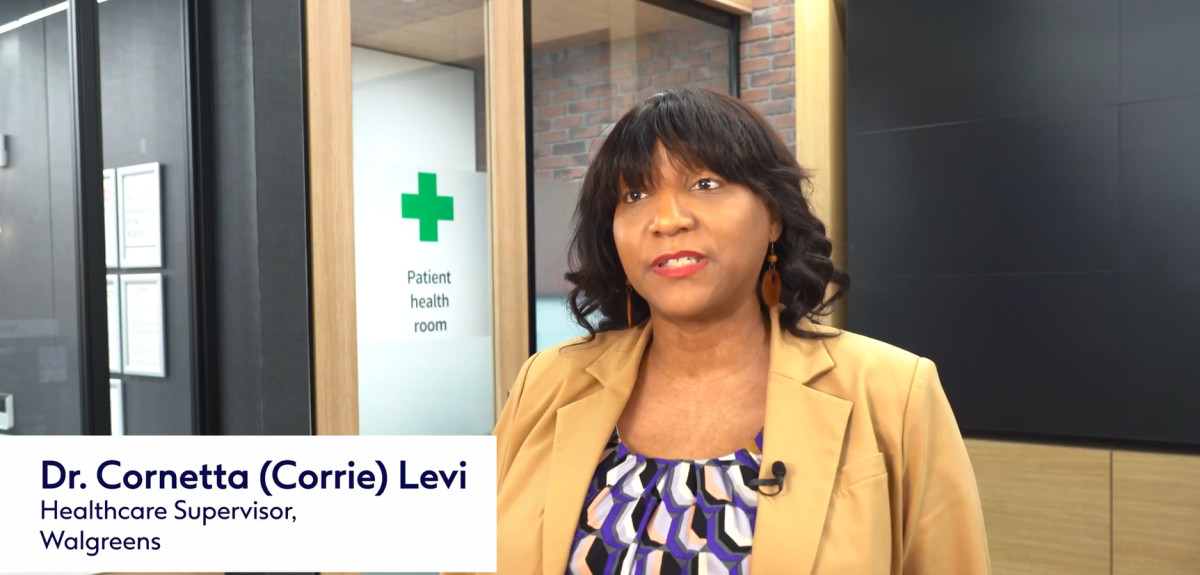6 Takeaways From WBA’s Healthy Communities Day
WBA leaders, team members, partners and suppliers came together in a shared commitment to people and the planet.
At Walgreens Boots Alliance’s first-ever Healthy Communities Day, held in Chicago this week, participants celebrated the progress of WBA’s health-centered Environmental, Social & Governance strategy and crafted future ambitions for healthier communities around the world. Marking the launch of its ESG Report for 2023, the event brought together stakeholders active at the forefront of global impact issues, from climate change to healthcare access, for candid discussions of what’s next.
Representatives ranging from global enterprise leaders to small business owners to nonprofit founders gathered in the National Museum of Mexican Art for the day, itself a testament to Walgreens’ community involvement as a museum sponsor and just a short distance from the first Walgreens store opened in 1901. Here are six takeaways from the event.
- None of us can do it alone. One theme throughout the day was that significant change comes when we work together and multiply our impact. WBA CEO Tim Wentworth set the tone for open partnership: “The most important part of our relationship is that we can share and define goals that we couldn't achieve individually, but together we can exceed.”
Ornella Barra, WBA COO international and ESG committee chair, agreed, saying, “We understand the need to keep up at this work and will continue to make investments that improve the prospects and environment for our people and our consumers. We cannot achieve this alone.”
A heartfelt example of what we’ve already accomplished together, with partner Vitamin Angels and the support of our customers, team members and their incredible network, is the over 400 million parents and children around the world supplied with life-changing vitamins and supplements in the past 10 years. Watch Michaela’s story above to see the real-life change we’re making.
- Climate change is closer than you think—and it’s personal. In a discussion moderated by Una Kent, WBA’s VP of ESG and DEI, International, panelists discussed the inextricable link between climate change and human health. David Croft, Global Head of Sustainability at Reckitt, acknowledged a misconception that many people hear climate change and think of distant polar ice caps and not the impact right at their doorstep.
“Does that feel personal to you? Do you want to change something about something that's so remote?” he asked. “One of the biggest things we've done together is start to change some of the conversation so that climate change becomes personal.”
In one such example, Sarah McDonald, VP, Sustainability at Haleon, talked about a study that put trackers on children’s backpacks to see how much air pollution they ingested while walking to school. An alternate route on a less congested road meant less polluted air and better health outcomes in the long term.
So, what are we doing about it? We’re joining forces, for starters. WBA and each company represented on the panel are part of the Climate and Health Coalition, which formed in 2022 to help the private sector accelerate the transformation of our health and climate systems to improve outcomes for both people and planet. Read more about WBA’s commitment to a Healthy Planet.
- Together we can localize healthcare. In a panel moderated by Alethia Jackson, WBA’s SVP of ESG and Chief DEI Officer, panelists discussed how 60% of health outcomes are driven by social determinants of health, such as your zip code. What this tells us is that healthcare is local and must be tailored to fit the unique needs of a community.
Each panelist represented a different point in the patient’s healthcare journey, such as vaccinating people in under-resourced countries, helping mothers through pregnancy, developing medicines and vaccines that can help with chronic disease, decentralizing and diversifying clinical trials, and making the LGBTQ+ community feel seen, heard and supported with their health needs. At the center of it all are pharmacists, embedded in their communities and empowered to provide education, access and care.
“Approximately 50% of our stores are located in medically underserved areas. Knowing our patients and customers in these communities has allowed us to work in tandem with partners who are also trying to help different segments of the population with the most need,” said Jackson. Read more about WBA’s commitment to Healthy Communities.
- Sustainability works when we bring consumers along for the journey. Rajnish Kapur, SVP of Strategic Sourcing and Supply Chain, WBA, led a discussion on the influence retailers like WBA can have on creating a better environment through choices on supplier partners, transportation, packaging and more.
“We need to meet consumers where they are and bring them along with us. We can't expect them to leap the Grand Canyon to come to where we are and our point of view as corporations,” said Jennifer Duran, global VP of Product Resiliency and Sustainability at Kenvue, maker of iconic brands like Band-Aid and Tylenol. This includes changing the narrative on sustainability from an add-on or afterthought to an integrated and expected feature of the products.
Small business owner Theresa Ging, CEO of Sugar Bliss, notes that in addition to sustainable packaging, it further supports the environment through a partnership with Plastic Bank, which removes plastic from the ocean and supports disadvantaged communities. “I realized the consumer I'm targeting understands that recyclable packaging probably costs more. They understand there's a social mission and we're giving back.”
Panelists agreed that making more inroads for small businesses to learn how to make sustainable choices would go a long way, and true to theme, working together between industry organizations, retailers and suppliers big and small was the way to do it. Read more about WBA’s commitment to Sustainable Marketplace.
- Forging connections are critical to fighting cancer. Angela Bower, Senior Director of Health Services Diversity and Inclusion, brought together some of the most prominent players in cancer care, awareness and prevention to discuss what patients need now. When you learn that 1 in 2 people will get cancer in their lifetime, and most of our panelists were cancer survivors or family of cancer survivors, you begin to understand the magnitude.
The emotional needs of cancer patients came through clearly, as Stephanie Lieber, Executive Director of Imerman’s Angels said, “Like many folks on this panel, we do this so that no one faces cancer alone.”
Pharmacists in our stores can be an important lifeline for cancer patients, offering counseling on emotional, physical and financial needs. Through a partnership with Macmillan Cancer Support, Boots pharmacists have been trained and had more than 150,000 supportive conversations with people with cancer.
Addressing inequities in cancer diagnosis and treatment was also a charged topic, with discussion on solutions as varied as educational materials for awareness starting at younger ages, culturally competent outreach in the Black and Hispanic communities, and increased diversity in clinical trials. Working together was also reinforced as the goal, as Paula Schneider, Chief Executive of Susan G. Komen said, “Be open to any partnership or one-plus-one-equals three situations. If we can figure out how to partner better together, the world will be a better place.”
- Team members are the foundation of how we deliver on community health. Every person working at WBA, from customer service associates to pharmacists to supply chain and corporate support, has a role in our vision to be the leading partner in reimagining local healthcare and wellbeing for all. Sal Venegas, interim chief HR officer, said, “Our team members, our people, are the heart of the company and the key to our success.”
For the more than 331,000 team members at WBA, creating a safe, healthy and inclusive workplace is our goal. Mary Stutts, CEO at the Healthcare Businesswoman’s Association and event panelist, shared that “the majority of employees really want to be active in their community and to be proud of working for a company that is active in their community.” Listen to two of our team members talk about how this comes to life for them above.
Read more about WBA’s commitment to a Healthy and Inclusive Workplace.





